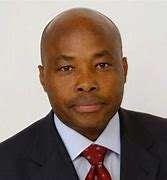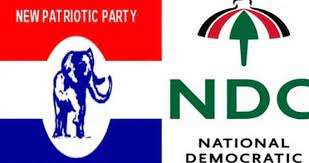Christians across diverse backgrounds and professions are gearing up for a significant undertaking – the assessment of political parties’ influence on Ghana’s democratic experience.
The National Christian Forum (NCF23), convened by Advocates for Christ Ghana (A4CG), is set to scrutinize the impact of political entities on various facets of national life.
Scheduled at various venues between November 16 and 18, 2023, this initiative, now in its fourth year, aims to delve into the effects of political parties on the church, the three arms of government, the public and private sectors, the media, and citizens.
The primary objective is to elevate the standard of accountability imposed on political parties and officials, shaping the discourse for the upcoming 2024 electoral season. Mr. Edem Senanu, a Development Practitioner, Anti-Corruption Campaigner, and Chairman of A4CG, expressed optimism about the forum’s potential impact, stating, “The NCF23 charts a historic course by civil society to enhance the quality of our democratic experience in Ghana.” Senanu emphasized the emerging need for governments to strategically engage with religious and cultural leaders to foster targeted developmental and behavioral changes.
“The NCF creates the platform for meaningful and sustainable dialogue between the state and the church,” Senanu added, highlighting the opportunity for the government to tap into the resources of the Christian community, constituting 71.3% of the population. The 2023 edition of the National Christian Forum will focus on evaluating past successes and identifying areas for improvement in the impact of political parties on national development. The goal is to distill recommendations that will influence political party manifestos, comments, commitments, and actions as the nation approaches the 2024 elections.

As part of the preparations, a pre-forum webinar was conducted on November 14, 2023, featuring distinguished speakers such as Prof. Karunti Kanyinga, Director of the Institute of Development Studies at Nairobi University, and Dr. Esther Offei-Aboagye, former Director of the Institute of Local Government Studies – Ghana & Development Consultant. The insights shared during the webinar will set the stage for robust discussions and informed evaluations during the upcoming NCF2023.
The National Christian Forum continues to serve as a pivotal platform for dialogue, reflection, and collaboration between the Christian community and the state, aiming to shape the trajectory of Ghana’s democratic development.
Politics, Governance And Christianity
At the same time, the intersection of religion and politics continues to be a focal of controversial debate in Ghana, particularly regarding the active involvement of Christians in political affairs. As the country grapples with a dynamic political landscape, questions surrounding the role of Christian values in governance have become increasingly contentious.
On one side of the debate are those who argue that Christians should actively engage in politics, contending that their values and principles can contribute positively to the nation’s leadership. Advocates emphasize the moral compass provided by Christian teachings, suggesting that the infusion of these values into policymaking can foster ethical governance and social justice.
However, a counter-narrative exists, with some expressing concerns about the potential risks of intertwining religious beliefs with political decision-making. Critics worry that such a convergence may compromise the secular nature of the state, potentially sidelining those of different faiths or no faith at all. Additionally, there are fears that an overtly religious influence in politics might inhibit the pursuit of policies that are inclusive and accommodating of diverse perspectives.
In addition, some believe that the muddy nature of politics can corrupt Christians who participate in the political arena.
The debate also touches on the delicate balance between freedom of religion and the separation of church and state. Ghana’s constitution guarantees religious freedom, but discussions about the extent to which religious beliefs should shape public policies persist.
Many Ghanaians have weighed in on the matter following controversies over the national cathedral, offering varied perspectives.
READ ALSO: National Peace Council Condemns Religious And Tribal Politics




















